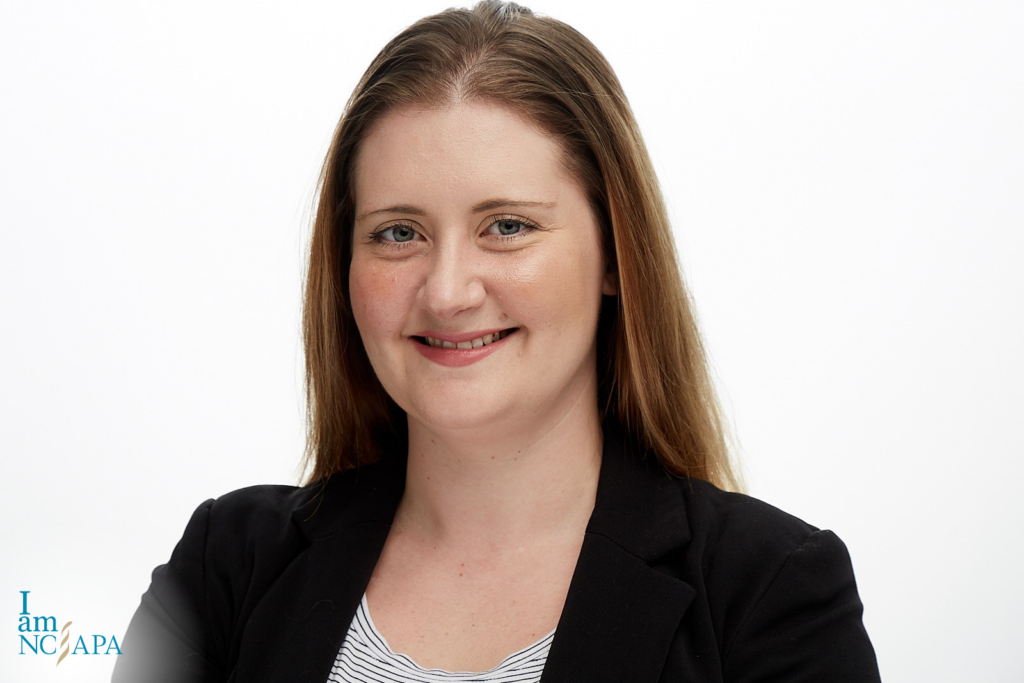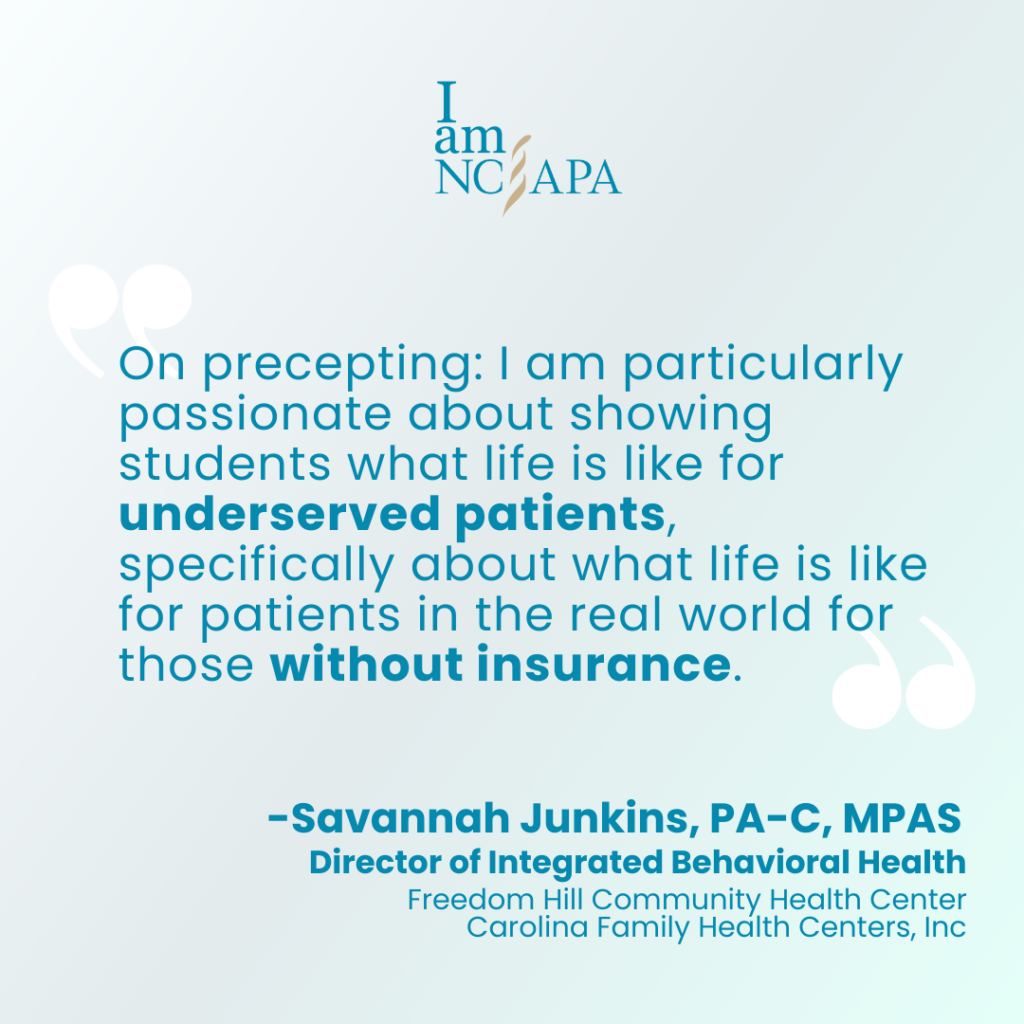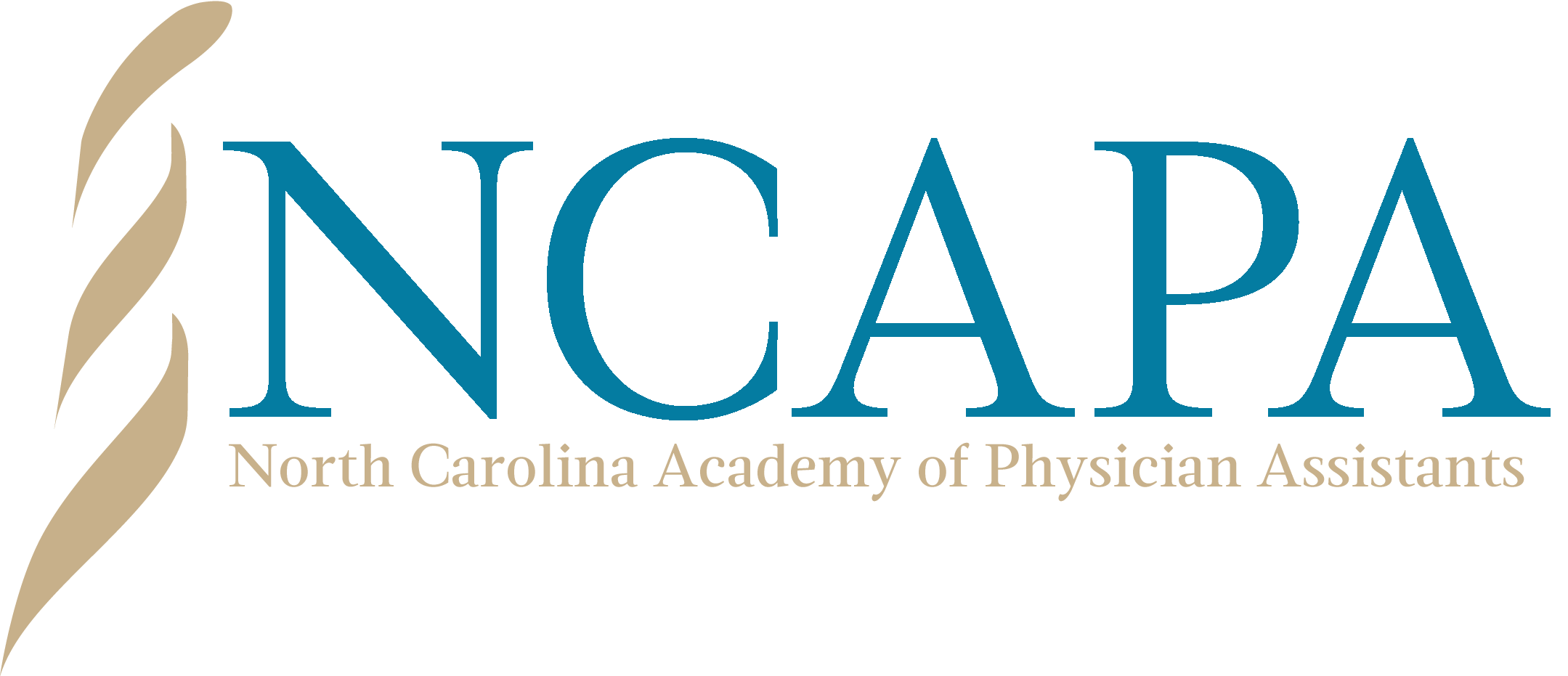
For the March #IamNCAPA Member Highlight, the NCAPA sat down and spoke with Savannah Junkins, PA-C, MPAS. A West Virginia native and a graduate of the Chatham University PA Program in Pittsburgh, Junkins has been a PA for over thirteen years. She is currently the Director of Integrated Behavioral Health at Freedom Hill Community Health Center, part of Carolina Family Health Centers, Inc, practicing in family medicine, which also encompasses substance use disorder treatment.
“I started practicing in September of 2010 as a National Health Corps Loan Repayment recipient,” PA Junkins stated. “For 13 years, I have working in community health centers in Edgecombe County. I also live in rural Nash County in Eastern NC, and we have a 10-acre property where we raise our own livestock and have a self-sustaining garden. Not only do I work in rural NC, I also live in rural NC – I think this helps to add a different lens as a PA and provider in my community.”
What inspired you to become a PA?
Junkins shared, “I grew up with my grandmother living with us. She had gotten into a car accident and became quadriplegic while also being on a ventilator. This was rural West Virginia. The person who did her care in the home was from a family practice in a town that was 20 minutes away.”
She continued, “He was a PA, and it was an incredible introduction of what a PA was, of someone meeting the needs of someone in the community who desperately needed that care. I realized then and there that PA school and becoming a PA would be a great fit for me.”
What does a typical day-in-the-life look like?
“I would say that I am in a very fortunate and unique position where I have a wonderful supervising physician while also having independent relationships with my patients. I see patients 3.5 days a week, while managing a department of about 11 people. I also always have a PA student by my side. It can get hectic, and I’m always wondering where the time went!”
What is your favorite part of your role?
PA Junkins smiled fondly, and shared, “I will say, in Edgecombe County, I have the nicest patients on the planet. They are the kindest individuals, they look forward to seeing me, they’ll ask about my family, they’ll want to know how I’m doing – just really appreciative and kind patients. They always make me feel that I am always part of their wellbeing, and this is my favorite part of what I do.”
What made you want to join the North Carolina Academy of PAs?
“I joined when I first came to NC, and I actually joined when I attended the NCAPA Summer Conference in Myrtle Beach! I hope I’m not the only person to have said that, ha!” she laughed.
“I realized then that a membership would be a great opportunity for CME and getting into advocacy, and getting to see and hear the inner-workings of legislative and policy-changes that may impact my career and medicine in general.”
What is it like to be both a practicing PA and a preceptor?
“Aside from three maternity leaves from my three children, I have had a PA student with me since 2012,” she shared. “What I enjoy the most about precepting is that I am particularly passionate about showing students what life is like for underserved patients, specifically about what life is like for patients in the real world for those without insurance. I really like exposing students to things they’ve never seen before from the logistical perspective, like, ‘Yes, this is how much that medicine costs,’ or ‘Yes, they have 10 prescriptions, but they can only afford 4. How are we going to navigate that?’ These are things that students may never have encountered before.”

“I also learn a lot from them,” she laughed. “They teach me new things, and now that students are getting progressively younger, they keep me up to date on cultural trends too! They definitely keep me challenged!”
What would you say to those interested in joining the PA profession?
“The opportunities are just limitless. If you can think of an area that interests you, there’s a PA there. The whole world of medicine is open to you. There is a place for anything you’re interested in, in nearly any environment – the flexibility is incredible and the ways to serve is limitless.”
Is there a patient story or experience that has greatly impacted you?
“Thirteen years in underserved medicine won’t allow me to drill down to just one patient,” she said. “I have seen some patients continuously every three months for thirteen years. To see that relationship grow is priceless.”
“One of my favorite things I do is substance use work,” she shared. “I’ve seen many patients with recent overdoses who have never sought treatment for substance use disorder before because the interactions they’ve had with the healthcare system beforehand have been poor. They are looking for somewhere safe, where people won’t judge them, and will treat them with respect. That is always something that we aim to provide in our clinic. I’ve seen miraculous transformations in patients who are given the kindness and compassion they deserve. The continuity of care and the change I have been able to observe with these patients is a pretty incredible experience.”
If you were not a PA, what would you be doing instead and why?
“I was contemplating law school for a while! I might be doing some governmental work or doing some advocacy work for low-income individuals,” she paused. “I also have such an interest in photography and dioramas and museums… I’ve definitely daydreamed about also being a diorama manager for a museum too. All the things!”

